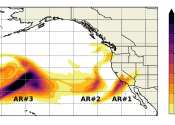Scientists find telling early moment that indicates a coming megaquake
Scientists combing through databases of earthquakes since the early 1990s have discovered a possible defining moment 10-15 seconds into an event that could signal a magnitude 7 or larger megaquake.









